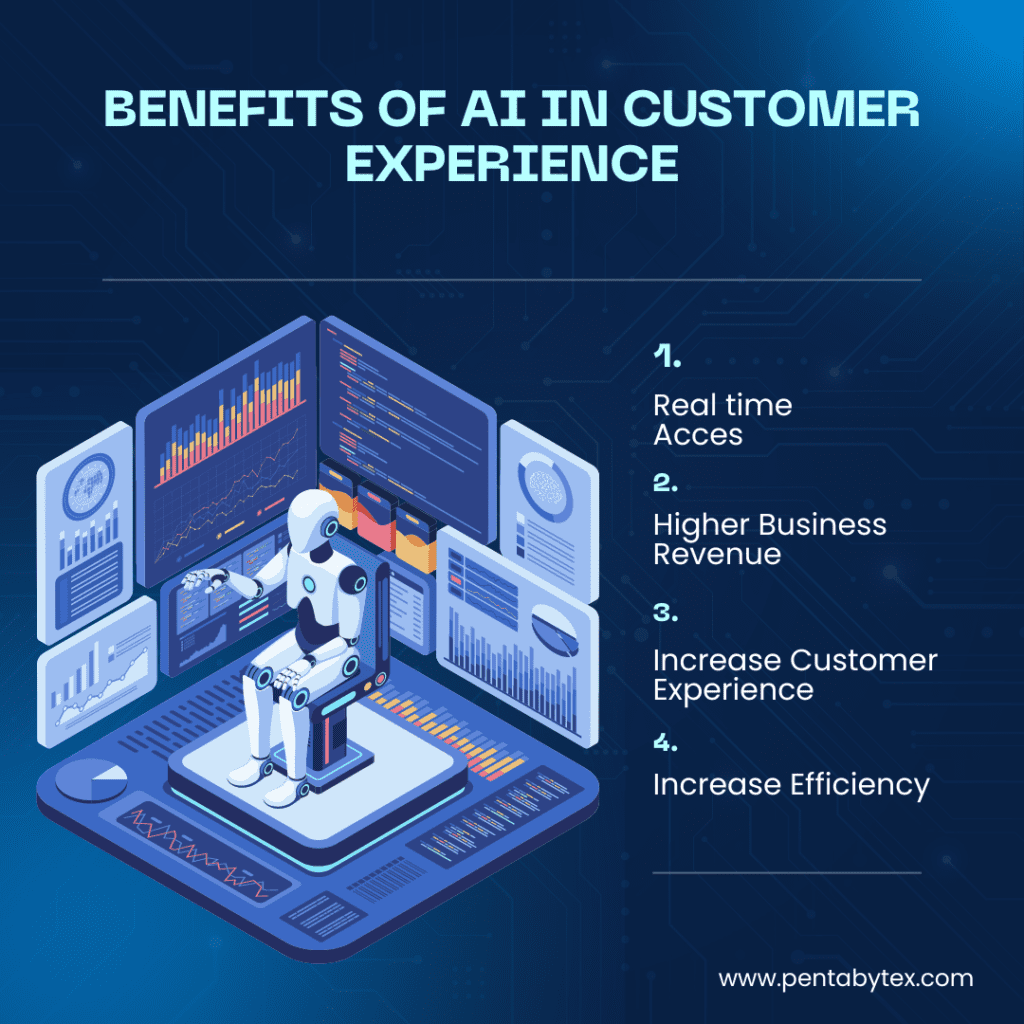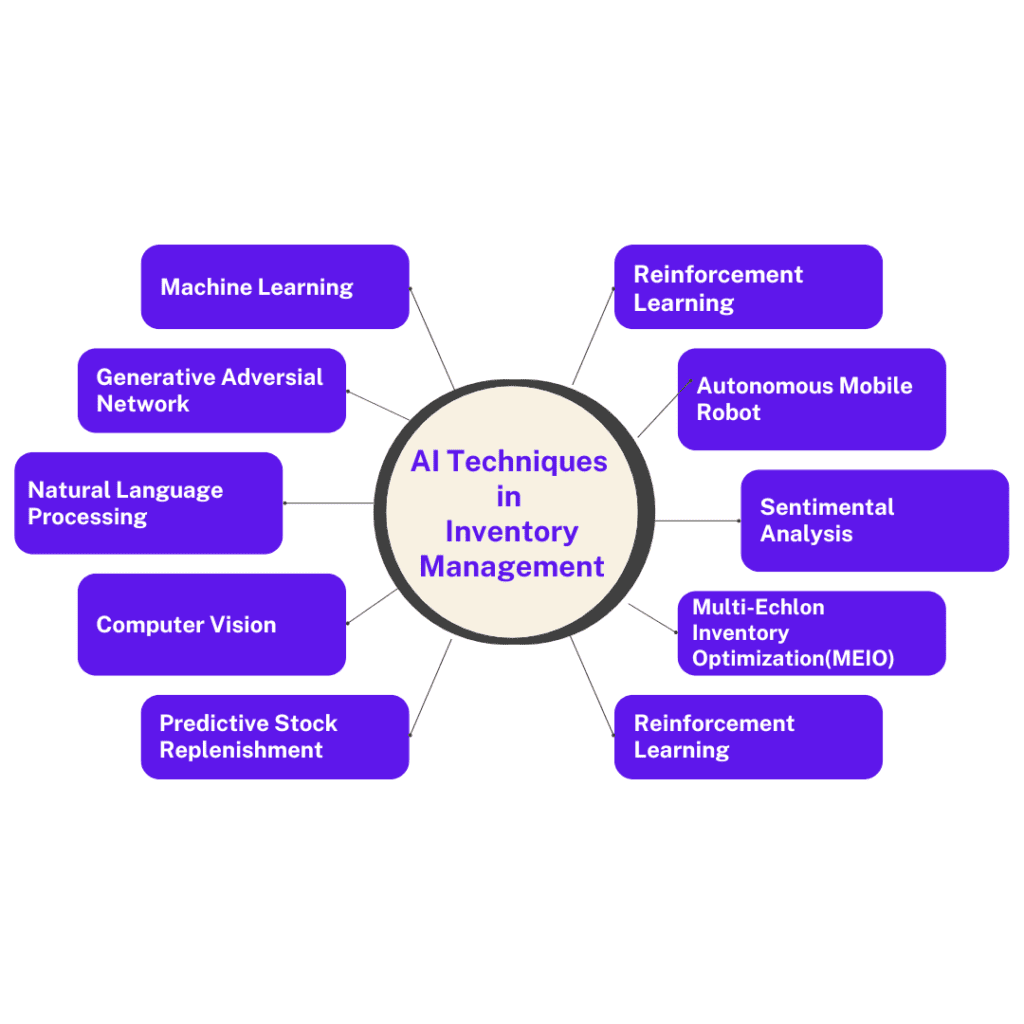AI has become a hot topic in various industries and the eCommerce sector is not left behind. The impact of AI in eCommerce in particular is huge; thus it changes the way businesses operate, improves the process of shopping, and increases sales.
Here is a closer look at what the future holds for internet shopping.
Understanding AI in eCommerce
Machine learning, natural language processing, and data analysis are being applied to enhance online merchandising services and inventory management in eCommerce.
AI technologies are ensuring that the whole online shopping experience is getting better due to improved customer service and inventory optimization.
For more insights into how AI is revolutionizing web design, you can check out our AI Web Design article.
Enhancing Customer Experience
One of the main benefits that AI has brought to e-commerce is how it has transformed customer experience. AI works best when it comes to individualization. AI can analyze customer information to suggest products that are most likely to be what a shopper is looking for to make purchasing something less annoying and hence more fun.
Benefits of AI in Customer Experience

AI-Enhanced Bots in Chatting
In customer services, these automated chatbots driven by artificial intelligence have brought about a revolution. They can be accessed at any time and provide immediate answers to frequently asked questions.
As a result, customer satisfaction has been taken to greater heights, and human agents can now concentrate on more complex matters.
For instance, when a client needs to know how his or her order is progressing, he or she just asks the bot, which then gives live updates; this way; the shopping experience is made better.
Intelligent Product Recommendations
Customer’s browsing history and purchase trends are analyzed by automated AI-based systems for product recommendations that are likely to impress the customer.
The increase in conversion rates and average order values can be huge just by adding this kind of personalization. Thus, Amazon possesses a recommendation engine that highlights how powerful AI could be in e-commerce.
Improving Innovative Operation
AI is revolutionizing operations, and enhancing efficiency. AI enhances efficiency from the task of managing inventory to that of moving goods through the supply chain. Learn more about how AI is optimizing mobile app development and design in our AI Mobile App Development and AI Mobile Apps articles.
Inventory Management
This system based on AI can predict the level of stocks by looking at historical data and trends. This ensures that there are always enough popular items in stock as understocking of least preferred products is minimized.
AI is currently being used by retail giants such as Walmart in the optimization of their stock levels resulting in reduced waste and increased profits.

Supply Chain Management
AI enhances supply chain management in that it can predict possible disruptions and select the most optimized delivery routes leading to faster shipping cost reduction by traffic congestion or weather patterns for example.
Predictive Analytics
AI-enabled predictive analytics help businesses forecast demand more precisely. AI allows merchants to predict future needs accurately and regulate their activities by examining relevant market trends and previous sales data.
This implies they maintain proper stock levels therefore preventing overstocking leading to better inventory management.
Marketing and Sales
AI is changing marketing and advertising strategies in eCommerce by making them more targeted and effective.
Marketing Influenced By AI
An AI-driven marketing strategy examines a huge volume of data to find customer groups for which different programs will be directed. This helps in channeling marketing efforts to the right target and hence better results.
For instance, Artificial Intelligence can scan social media patterns to spot possible buyers where personalized adverts can be channeled.
According to Martech Advisor, AI in marketing can lead to more precise targeting and improved campaign performance.
Dynamic Pricing
Businesses can adjust prices in real-time using dynamic pricing which is driven by AI technology. This way, they maintain competitiveness rates and ensure profits are maximized.
Similarly, just like airlines and hotels have been doing for years, eCommerce firms are also applying the same strategy.
Sales Conversion Rates
AI tools can analyze customer behavior through websites to isolate blockages that hinder sales. As much as this could help in enhancing user experience which eventually leads to high conversions, knowing the points at which clients disappear will facilitate appropriate changes by organizations.
An analysis of heatmaps can reveal where people are clicking and suggest improvements in this regard. Business.com explains how AI can help eCommerce businesses optimize their websites for better conversion rates.
Security and Fraud Prevention
Security remains a key issue among e-commerce enterprises. It is a matter worth noting that Artificial Intelligence is very instrumental when it comes to augmenting transaction security and checking fraudulence.
Fraud detection
Real-time AI systems are used to study transaction records for the identification of abnormal activities as well as flagging cases where there may be a likelihood of fraud. This prevents wrongful transactions and ensures that the interests of customers are taken care of.
An example could be when an artificial intelligence detects unusual spending habits and tells the system to take necessary precautions.
According to a report by McKinsey, AI-driven fraud detection systems are becoming more advanced and efficient.
Transaction Security
The process of enhancing transaction security through the use of AI revolves around the application of machine learning algorithms that are capable of identifying as well as preventing information security risks.
This way, clients’ information remains confidential and secure, thus fostering trust and assurance during online shopping. In this connection, for instance, phishing may be identified with AI before hackers manage to access any confidential data unauthorizedly or without anyone’s knowledge.
Future Trends in eCommerce
The future of AI in eCommerce is bright. Several emerging trends will transform the industry.
Voice Commerce
AI-powered voice commerce allows clients to make orders via voice commands. As the use of intelligent speakers and virtual assistants increases over time, such a hands-free shopping experience is gradually becoming popular.
For instance, by speaking, one can buy items using Amazon Alexa.
Visual Search
AI-powered visual search enables customers to search for products using images instead of keywords. This enhances the shopping experience, especially for fashion and home decor items.
For instance, customers can upload a picture of a product they like, and the AI will find similar items available for purchase.
Augmented Reality (AR)
The use of Artificial Intelligence (AI) in online trade makes people accept augmented reality (AR). This leads to a situation where clients can see the products in their place before purchasing. This has proven quite beneficial especially when shopping for home furnishings like sofas and chairs just to name a few.
An example is an application developed by IKEA enabling potential buyers to visualize whether or not particular pieces would fit well in their houses.
Case Studies and Examples
Many top eCommerce brands are confidently utilizing AI to better their operations as well as that of their clients.
Amazon
Amazon is a big user of AI with personalized recommendations and warehouse automation. A lot of its sales are greatly influenced by the recommendation engine based on AI.
Walmart
Walmart uses AI to manage inventory and optimize the supply chain. Doing so has reduced costs and enhanced efficiency.
Challenges and Considerations
However, the implementation of AI in eCommerce poses challenges.
Challenges of Implementations
They need to make sure that they have the necessary infrastructure and expertise before installing AI solutions because it can cost a lot when done initially. Purchase of AI technology might be hard, especially for those operating on small scales.
Ethical Considerations
Using AI e-commerce raises ethical questions around data privacy or algorithm bias. Every business must use AI in ways that are both responsible and transparent.
Conclusion
AI in eCommerce is transforming the future of online shopping in a variety of ways, such as improving customer experiences through customization, streamlining operations, and providing increased security.
Moreover, with the course AI is taking today, it is evident that its influence in e-commerce is bound to increase only further thus becoming a compulsory tool for those enterprises wishing to remain competitive within the online space.







